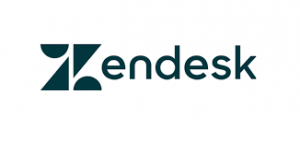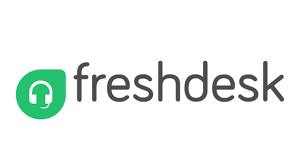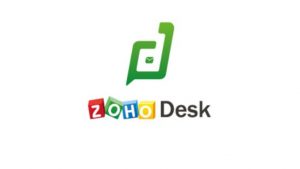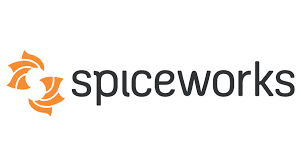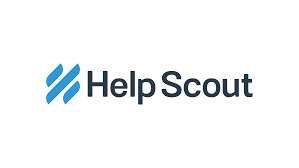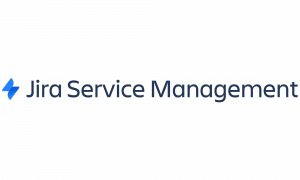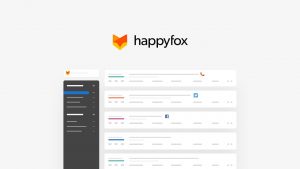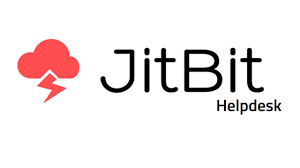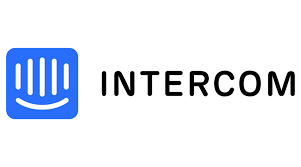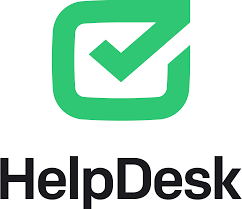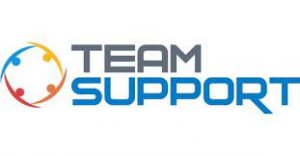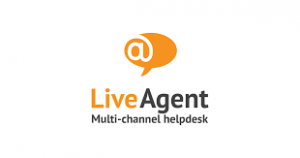Help Desk software is a software-based program that captures, tracks, and manages client inquiries. It’s a single point of contact for consumer problems and solutions. It is a software program designed for service personnel to keep track of their customers’ requests and, as a consequence, to deal with client issues more efficiently. This service, supplied by corporations to clients, improves the customer’s interest in business dealings since this Help Desk Software program handles a lot of the work for the customer. Back in the day, most transactions were conducted face-to-face, and client care representatives had to visit each customer personally to fix their difficulties, which squandered a great deal of time, money, and effort.
It’s not as simple as finding the sun on a clear, bright day to get the finest help desk software for your company. You have to look at hundreds of product websites, read a lot of reviews, figure out the terms and conditions of prices, talk to service professionals, and so on. Also, since every vendor says they have the best tool, the job is made much harder. There are a number of competent help desk system solutions available.
The correct help desk software can help you keep track of support issues, get to the root of every problem, boost team efficiency, and track how satisfied consumers are with your service. This article will educate you about all you need to know about the many benefits and types of help desks, as well as provide you with a detailed look at the top 15 help desk software options for 2022.
15 Best Help Desk Software Systems for Your Business 2022
The introduction of Help Desk Software, on the other hand, has transformed the way companies are done since it manages problem tickets online, automates most suites, and improves reporting and optimization accuracy. Help Desk software has evolved into a one-stop-shop for consumers and staff seeking assistance with any concerns. It has been developed with a number of useful features to help customers with their problems, and it is quickly becoming a must for all customers.
What is Help Desk Software and How Does It Work?
Help desk software can help you improve the quality of your customer service. Agents may collect requests or issues from a variety of sources, including email, phone, live chat, web forms, and the knowledge base, and track their progress until they are handled. You can put all support interactions in one place, offer help in real-time, and let customers use a self-service site to find answers. Furthermore, by recording customer service metrics and KPIs, the best help desk software assists managers in analyzing performance.
Metrics like ticket resolution time, initial contact resolution, ticket backlogs, open tickets, and more may be tracked. You can also use platforms like Qualaroo to send customers surveys after every service interaction and keep track of how happy they are.
What Are the Most Important Help Desk Software Features?
While each tool can have hundreds of functions, some of them are essential to your process. Let’s look at some of the most important help desk features in detail:
1.Storage in the Cloud
Cloud-based help desk software has a number of advantages that may help your company save money while also delighting consumers. You pay a monthly membership fee per agent rather than investing in pricey servers or software licensing. You also won’t have to worry about maintenance, security, or data backups because the help desk provider will take care of these. Whether your agents are at work or at home, they may use all of the help desk capabilities at any time and from any location.
2. Internal company collaboration
Customer service is not a one-person profession; it necessitates collaboration. This means you’ll need to provide the ideal environment for your agents to exchange ideas, make suggestions, and help one another. The best service desk software lets your team work together so that everyone is always on the same page. For example, agents can use internal notes to talk about tickets with each other, break up hard cases into multiple child tickets, and make automated responses to help them answer tickets faster.
3. Artificial intelligence-powered chatbots
Chatbots may appear to be a high-end function with a high price tag. The greatest help desk software, on the other hand, allows you to create your own chatbots for a little fee. Intelligent bots can be used by customers to talk to them and answer simple questions about product availability, price, return policies, shipping times, and more. In addition to providing customer service, bots may be utilized to create trustworthy leads on your website and close more sales possibilities.
4. Knowledge Base for Self-Service
A self-service knowledge base is one of the most important parts of many popular help desk ticketing systems. A good knowledge base has a collection of Frequently Asked Questions (FAQs), help articles, video lessons, manuals, and other materials that can help customers solve their own problems. It can help business owners lower their support ticket volume and service expenses. Agents may use their time and effort to resolve pressing issues rather than reply to identical client inquiries.
5. Metrics for the Help Desk
Many organizations are confused when it comes to monitoring the success of their customer service personnel. You may measure key performance indicators (KPIs) and metrics that help you spot abnormalities in your process and evaluate what is performing well with the correct ticketing system. You may, for example, build reports that show you your average ticket response time. If you measure and improve this help desk parameter on a regular basis, you can make agents more productive and improve the customer experience.
1. ProProfs Help Desk
ProProfs Help Desk is the finest free help desk software since it has a lot of features without breaking the bank. Multiple shared inboxes for customers, like support@, contact@, returns@, and so on, can be managed in one place. This gives your agents a full view of everything. Unlike other products, ProProfs provides a full customer service package. You receive a knowledge base, live chat, a survey creator, and other features in addition to a ticketing system. Your team can talk to each other in real-time by using features like private notes, parent-child ticketing, and pre-made replies.
Features:
- Use smart chatbots to help customers and generate more sales leads.
- With agent collision detection, you may avoid having numerous agents working on the same ticket.
- At a glance, you can see all of your previous support interactions and obtain all of the information you need.
- Track the time it takes to resolve tickets, customer happiness, and other help desk KPIs.
- Add a help form to your website to allow visitors to report problems right away.
2. Zendesk
When it comes to current help desk platforms, Zendesk’s popularity is unrivaled. The company has a solution that is easy to scale up and brings together all of your team’s features and customer information in one place. You may have a discussion that is seamless across platforms, including texting, live chat, social media, and voice. Zendesk has powerful automation tools that can help your team get more done in less time. You may even use AI-powered bots to help clients find relevant help and eliminate the need for employees to repeat themselves frequently. The tool comes with a 14-day free trial, but no permanent free plan is available.
Features:
- Reduce inbound service queries by creating a specialized knowledge base.
- Improve your consumers’ experience by learning how they engage with your company.
- Pre-built reports may be used across all of your customer support channels.
- Create a customer community forum where they may interact and cooperate.
- Improve help desk performance by integrating with third-party applications.
3. Freshdesk
Freshdesk is a popular help desk software that helps your company have more meaningful discussions with clients across many channels. Your company may even use AI-powered chatbots to help clients find the best solutions to their problems or questions. Freshdesk has a lot in store for you if a phone is your top priority channel. Your representatives will know everything about the customer and be able to talk to them about important things. You can cut call wait times in half and get to the next level of service faster with strong routing engines.
Features:
- When consumers respond with a “thank you,” don’t renew support tickets.
- Create scripted or pre-formed solutions to swiftly address concerns.
- Share ticket ownership with other teams and benefit from their critical input.
- Manage your company’s social media posts and mentions on Twitter and Facebook.
- Agents’ field time is tracked, and billable hours are logged.
4. Zoho Desk
Zoho Desk is another great help desk solution. It lets your company use the power of client context to make support conversations better. Agents can effortlessly communicate with clients via email, chat, social media, phone, and website, and handle situations without breaking a sweat. If your staff has trouble helping international customers because of the different time zones, you could set up a self-service site with answers to questions that are often asked. This enables your company to provide continuous service 24 hours a day, seven days a week. You may even add a live chat widget to your help center so that consumers can connect with an agent if they can’t find the answer they’re looking for.
Features:
- Create a large online community of clients and allow them to communicate with one another by integrating Zoho CRM and providing agents with all the information they want.
- Create service level agreements (SLAs) and keep track of when they are broken so that customers know where their tickets stand.
- Maintain your brand voice by mapping your help center to your company’s domain.
5. Spiceworks
Spiceworks has a cloud-based helpdesk system that may make it easier for you to deal with IT problems and tasks. You don’t have to worry about server purchases, backups, or even maintenance because your help desk is hosted in the cloud. Spiceworks allows agents to quickly track IT problems, respond to tickets, make private comments, and close them. You may also build custom fields to keep track of information specific to your company. Staff and customers should be able to check on the status of their tickets through a user interface that they can change.
Features:
- Assign tickets to agents automatically and keep track of their progress.
- Share support tickets with other members of your team to help you solve problems quickly.
- Reports may be generated, and team performance measures can be viewed at a glance.
- Keep track of new tickets and figure out how long it will take you to respond.
- Customers may use the Spiceworks community forum to ask questions and discuss suggestions.
6. Help Scout
Help Scout is without a doubt one of the top helpdesk software solutions with a powerful shared inbox function. Create several shared inboxes for various teams, email accounts, and brands to keep everyone on the same page. Help Scouting elevates teamwork to a whole new level. Agents can use private notes with @mentions to discuss tickets before responding. They can even build a large library of shared responses and quickly insert them into tickets. With the help of live chat, you may also assist consumers or finish a deal in real-time. If no one on the team is available to handle chats, clients might be directed to email instead.
Features:
- Text, photos, hyperlinks, videos, and tables may all be easily added to help articles.
- With triggered messages, onboard new clients and provide proactive assistance.
- create statistics on the overall number of discussions and the busiest hours, as well as track performance.
- With the agent collision detection tool, you can avoid having the same conversation more than once.
- Track the number of tickets sold by channel (email, chat, or phone).
7. Jira
Jira is a powerful IT service management solution for tracking IT requests and events. Jira has features that can help you reach your goals, whether you’re a small company trying to keep track of incoming problems or a big company trying to improve your support operations. Jira is the ideal tool for managing incidents in real-time. You may keep track of all incidents, escalate them to the development or operations teams, and promote cross-departmental communication. You can also keep track of your IT assets for their whole lives and give agents access to details about them through Jira tickets.
Features:
- Using the Jira mobile applications, you can swiftly submit, approve, and resolve tickets.
- To keep track of deadlines, create several SLA (service-level agreement) rules based on your needs.
- Reduce the number of internal tickets by establishing an employee self-service site.
- Customer satisfaction reports may be used to improve the customer experience.
- Improve internal collaboration by integrating with Slack and Microsoft Teams.
8. Vision Helpdesk
Vision Helpdesk is another great piece of help desk software that deserves to be on this list. Your customer care personnel may use the platform to receive, process, and respond to events and service requests. With its multi-channel features, you can put all of your support conversations in one place, whether they happen over email, a web portal, Facebook, Twitter, the phone, or chat. The multi-language option in Vision Helpdesk allows you to translate both staff and customer portals into different languages, such as French, German, and Spanish. This helps your company serve consumers all around the world by allowing end-users to locate answers in their own language. Also, if SLA management is done well, agents can respond quickly and solve problems within the time frame set.
Features:
- Set up agent accomplishment levels and objectives to make your process more fun.
- Allow your agents to keep track of the time they spend on a particular ticket.
- Create a bilingual client site to help customers all around the world.
- Customers will be suggested items from the knowledge base automatically.
- Improve search engine exposure by writing SEO-optimized help articles.
9. HappyFox
HappyFox combines the capabilities of a powerful support ticket system, a self-service knowledge library, and community forums to help you enhance customer service. Your business can easily turn phone calls, emails, chats, and other conversations with clients into tickets and organize them all in one place. Your team can get more done with HappyFox’s sophisticated help desk automation. For example, you can improve your productivity by making smart rules that tell you what to do when there is a problem with support. It works with more than 25 languages, so help desk agents can use their preferred language to access their dashboard.
Features:
- Create a bilingual information resource to help your international audience.
- Customer satisfaction questionnaires should be sent out, and the support experience should be improved.
- Create agent activity reports based on individual performance and service level agreements (SLAs).
- With the help of an internal knowledge base, onboard new agents faster.
- Get email updates regarding help desk operations automatically.
10. JitBit
JitBit provides an easy-to-use ticketing system that can be set up in minutes. To begin resolving support tickets, just forward your emails to the help desk app. You may pick between the SaaS (software as a service) and on-premise versions, depending on the size of your team and your company’s needs, and start providing 24×7 assistance to clients. JitBit provides both Android and iOS users with free mobile applications. Agents may now assist clients even while they are absent from their desks by viewing tickets, assigning agents, updating ticket data, and attaching files. While clients are typing, you may also offer relevant knowledge base items to them.
Features:
- Assign IT assets to tickets and keep track of the whole company’s inventory.
- Slack, Dropbox, Github, Google Drive, and more services are all built-in.
- Make use of reports to learn more about your best-performing knowledge base material.
- Divide a large ticket into smaller ones and allocate them to various agents.
- Add your own logo, colors, and fonts to your help desk’s interface.
11. Intercom
Intercom has a unique platform called Conversation Support that is jam-packed with features you won’t want to miss. The platform’s messaging tool, which works in-app, online, and on mobile to help your staff provide speedier assistance, is well known. With Intercom, you can make chatbots that can answer the most common questions or requests from your clients. You may even encourage self-service by posting well-designed and comprehensive help articles.
Features:
- When unexpected circumstances occur, send proactive messaging to customers.
- You can create sophisticated chatbots without knowing how to code.
- With simple publishing tools, you can create and distribute appealing help materials.
- Enhance the onboarding process by providing informative product tours.
- Take advantage of the conversation history that is preserved for both customers and team members.
12. HelpDesk
HelpDesk is another well-known ticketing system. It is known for having a strong shared inbox and other email ticketing features. Converting emails into tickets and keeping track of all interactions in one spot is simple and enjoyable with this application. Using tools like private notes, assignment rules, and team mailboxes, your team can interact in real-time. HelpDesk lets you set up automated workflows to speed up your processes and get your daily tasks done faster. Agents, for example, can receive new ticket notifications even if they aren’t connected to their system.
Features:
- Create prefabricated responses for various circumstances to reduce reaction time.
- Identify instances when your team receives a higher volume of communications than normal.
- Create pleasant and professional signatures for emails that you send out.
- Using the ticket history, double-check what you’ve already discussed.
- Shopify, Salesforce, and other popular technologies may all be integrated.
13. TeamSupport
TeamSupport is a popular B2B customer service solution that helps businesses build long-term relationships with their clients. You will receive all the tools to expedite support issues, improve internal cooperation, and give an omnichannel experience to customers, in addition to excellent ticket management. You may use this application to keep track of all of your customer conversations in one place. This puts you in a better position to have a deeper understanding of user attitudes and spot important concerns or possibilities.
Features:
- Individuals and groups may easily be assigned to customer support tickets.
- Discuss tickets, customers, or products with team members in real-time.
- With Team Support’s integrated calendar, you can better plan your tasks and issues.
- Make reports to figure out which clients are contacting you repeatedly.
- Consumer happiness and overall customer health should be monitored.
14. LiveAgent
LiveAgent is a software-friendly help desk application that allows you to keep track of customer care emails, live chats, phone calls, and more. You can even keep track of your social media messages and mentions on Twitter and other sites. You can keep your staff motivated and engaged by using gamification elements. You can also use LiveAgent to send proactive chat invites to individuals in your target audience who are browsing your website. You can allocate tickets to other departments or distribute them across team members.
Features:
- Inside tickets, make internal notes to discuss complicated issues with other agents.
- Your top-performing help desk personnel should be identified, rewarded, and appreciated.
- Combine many tickets with comparable characteristics into a single ticket.
- Make email templates to make different sorts of exchanges go faster.
- Create Service Level Agreement (SLA) reports seeing how well your team is meeting client expectations.
15. Web Help Desk
Web Help Desk is another well-known product that is known for its cost management and asset management features. You may keep agents on their toes and aware of when they need to reply to clients by using SLA notifications and reminder alerts. With its IT asset management features, you can locate and manage all of your hardware and software assets in one location. You can also centralize knowledge management by creating a massive knowledge base for your global customers.
Features:
- With a built-in knowledge base for the help desk, you can create and preserve knowledge.
- Create, allocate, and escalate tickets to automate request handling.
- Use the built-in asset finding, inventory management, and reporting features.
- Manage change requests to reduce their negative influence on your company.
- Distribute automated questionnaires to customers and track their satisfaction.




